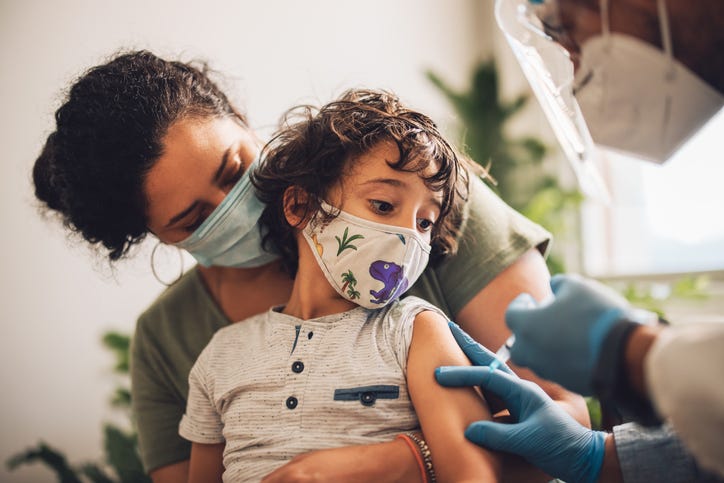
The COVID-19 drug remdesivir has now been approved by the FDA for young kids as little as 28 days old, making it the first treatment authorized for children who aren't yet able to get vaccinated against the virus.
This new treatment could be a gamechanger, after the Omicron surge hit little kids particularly hard, landing five times the amount of kids under 5 in the hospital compared to the previous peak.
Both treatment and a vaccine are necessary in order to better protect young children from the virus, according to Dr. Dean Blumberg, Chief of the Division of Pediatric Infectious Diseases and professor at UC Davis Health on KCBS Radio's "Ask an Expert" with Holly Quan and Dan Mitchinson on Tuesday.
"We're still awaiting vaccines in those less than 5 years of age, those aren't yet available," he said. "But even if patients are vaccinated, there are going to be breakthrough infections, and a small percentage of those infections will be serious and require treatment."
And because some patients won't respond well to the vaccine, because of weakened immune systems, and will most definitely benefit from this new treatment if an infection does occur.
Remdesivir brings down the concentration of the virus, and can be used preventatively, to keep a breakthrough infection from progressing even further, he said.
The treatment is administered intraveneously, so children who are already hospitalized will see the most benefit.
Remdesivir has shown to maintain its potency in the face of all variants, as it targets viral growth and replication.
While the treatment is likely to greatly help, it's still important for people to strive to prevent infection altogether.
So far, the children Blumberg has treated for COVID-19 they've responded even better than adults, "but many of the children do end up in the ICU and it’s really heartbreaking to see," he said.
It's important especially for families to ensure that the virus doesn't spread amongst members because there isn't a vaccine available for young children yet.
For those families, people who can be vaccinated should do so, and continue to wear face masks when around people who might not be vaccinated, especially when they are indoors, "so they don't bring COVID-19 home and infect these vulnerable children," said Blumberg.
All the treatments now available should be considered "backup plans," he said. "Whereas the primary prevention still is vaccination."
LISTEN on the Audacy App
Sign Up and Follow Audacy
Facebook | Twitter | Instagram